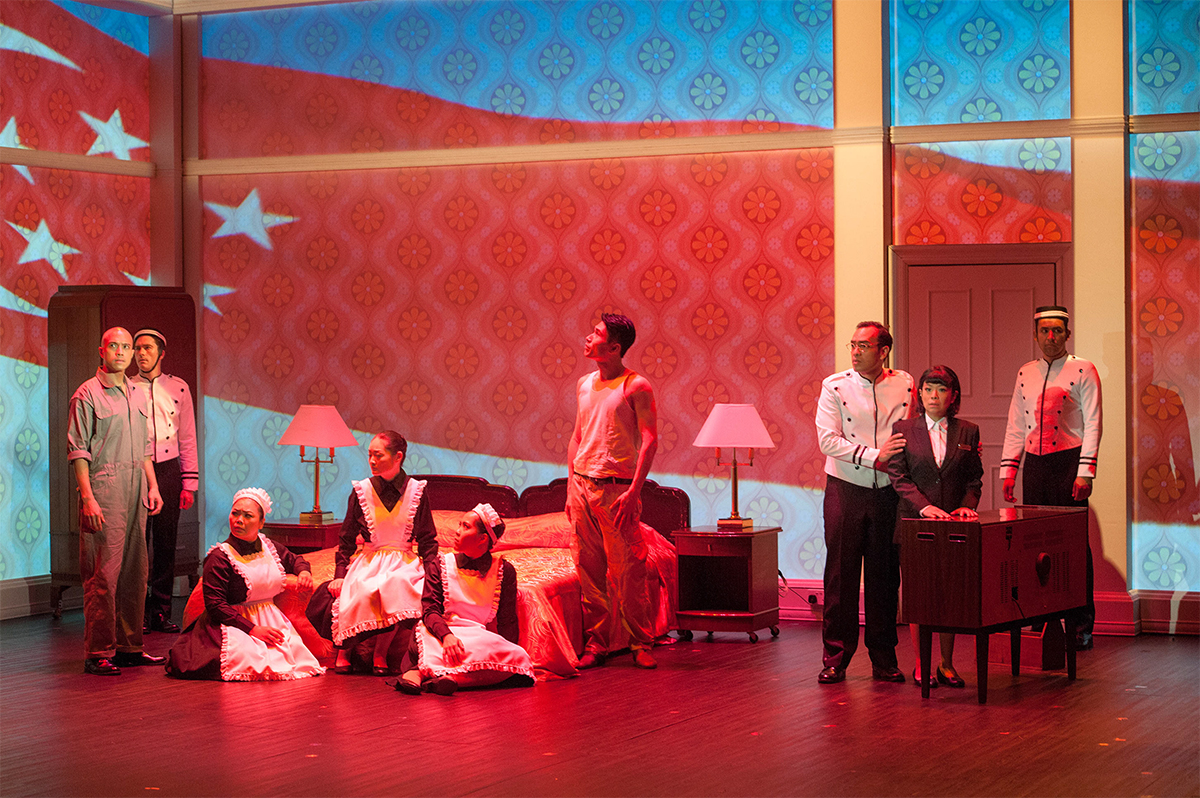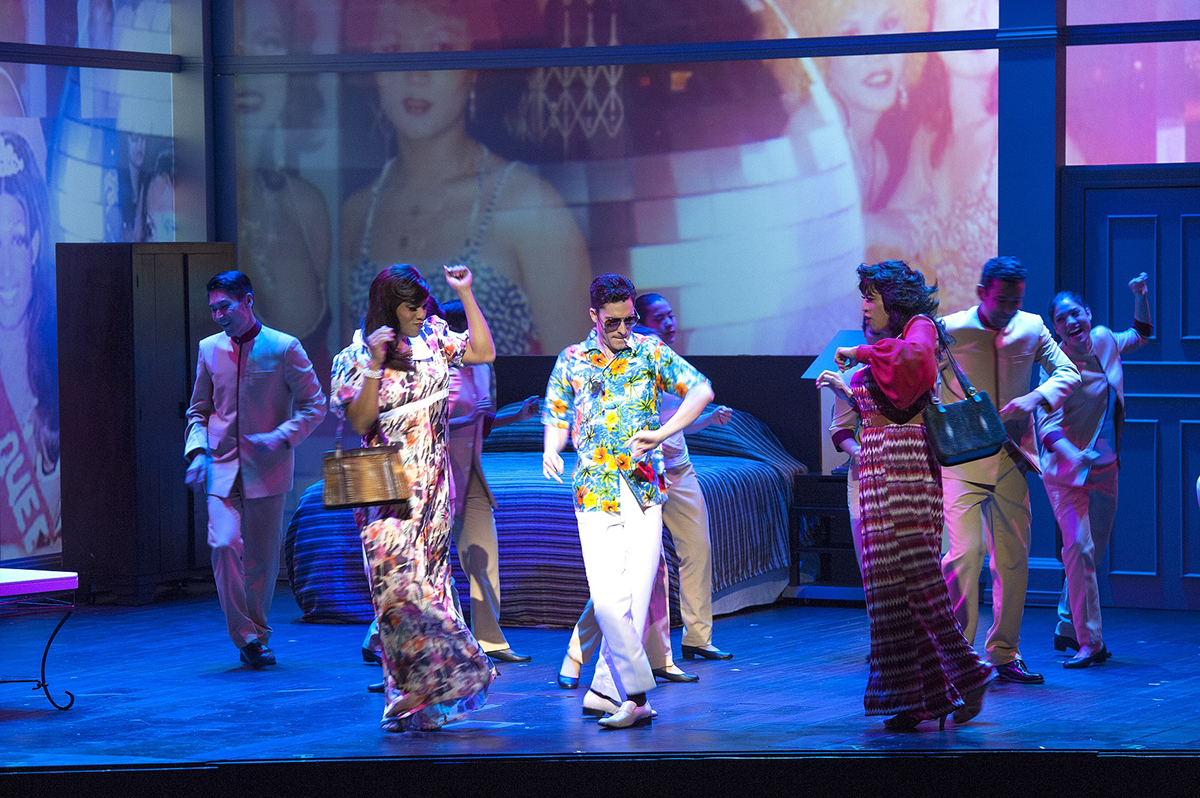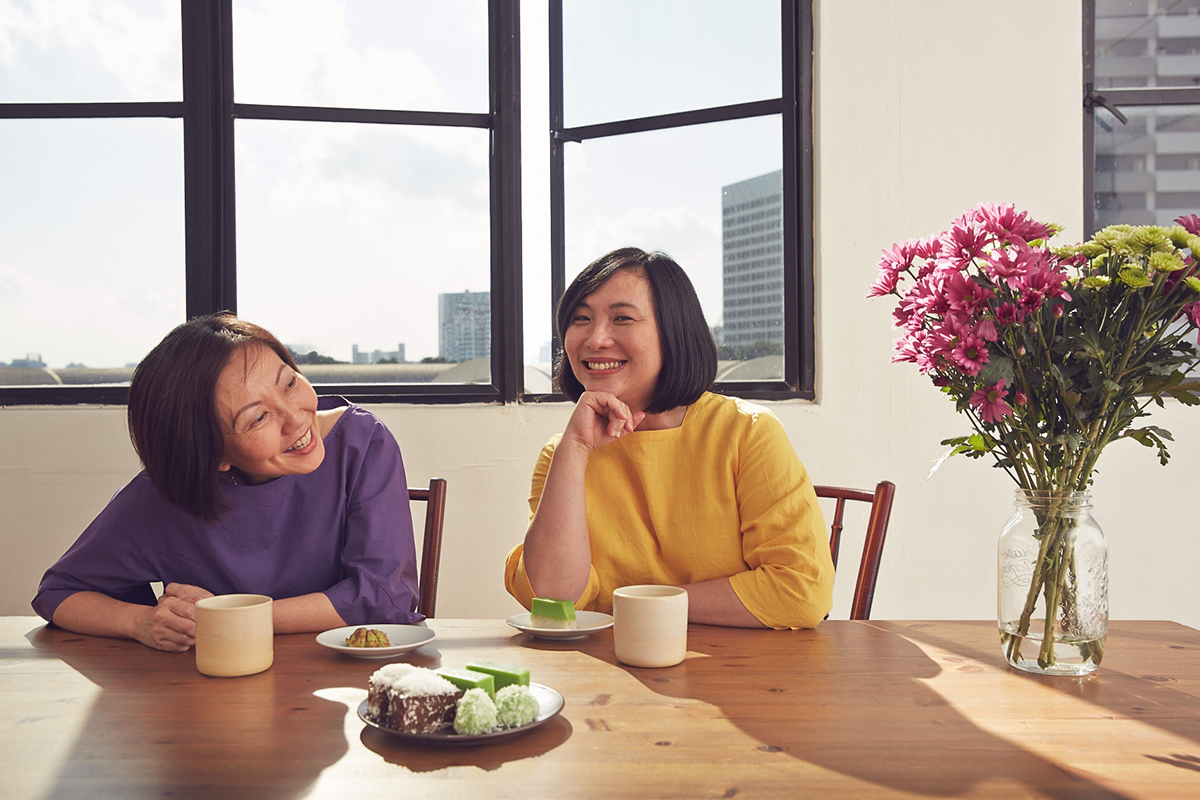
OzAsia Festival: History, epic & intimate
In the 2017 OzAsia Festival two acclaimed theatre productions from Singapore — W!LD RICE’s Hotel and Checkpoint Theatre’s Recalling Mother — probe Singaporean history, identity and family interaction in vastly contrasting ways, one epic, the other intimate. Previously a British colony and then briefly part of the Federation of Malaysia, Singapore became a sovereign nation on 9 August 1965. Chris Reid spoke to members of both ensembles on 10 August, the day after huge National Day of Singapore celebrations.

Hotel, Wild Rice, photo courtesy OzAsia 2017
W!LD RICE, Hotel
First staged in 2015, Hotel presents Singapore’s history from 1915 to 2015 through the interaction of a succession of groups of people in a room in a hotel not unlike the famous Raffles. Shown in two five-hour parts over successive nights, the play reveals Singapore’s turbulent history, rapid social and political evolution and diverse culture through the eyes of the play’s characters. I chatted with co-director Glen Goei and co-playwright Alfian Sa’at about the development of Hotel and its politically and socially charged themes.
Glen Goei tells me about the scale of the work: “It has a cast of 14 actors who play over 100 roles in nine languages including Japanese, Cantonese and Malay. There are two writers and two directors. Although an unusually long play, each scene is on average 20 minutes, very bite-size, very palatable, very accessible, like binge-watching… If you commit to the two parts, you will be rewarded because some characters re-emerge, older but wiser.” Set at 10-year intervals, the successive scenes reveal Singapore’s development in the context of world history in a text that is predominantly in English and a production strongly imbued with Western theatrical traditions.
A variety of families and groups occupy the hotel room, revealing Singapore’s ethnic and cultural diversity, highlighting the multiple traditions that constitute modern Singapore, rather than glossing over them. Alfian says, “We should not let any one identity try to dominate our understanding of the country and we should have a dialogue about our differences.” Glen adds, “Imagining we are one cohesive whole is unrealistic.” Noting that Singapore existed long before Sir Stamford Raffles established the British colony in 1819, he says, “Let’s celebrate differences. Singapore is a true melting pot… The Indigenous people who were here 500 years ago were the Malays, they were 100% but now form only 15% of the population.”
As in Australia, immigration numbers and the presence of foreign workers are issues in Singapore. Glen notes, “We are allowing 100,000 people in every year… The population is 5.6 million of which really only about three million are native Singaporeans — as in being born here — and that population isn’t growing.” Ethnic diversity and continuous immigration and emigration means that Singapore’s sense of tradition is in flux. Alfian thinks that “we are living in an eternal present and in a society that is quite amnesiac in a way.”
The Adelaide production will be Hotel’s international premiere, providing its makers with its first feedback from a non-Singaporean audience. Glen comments, “I think that Adelaide audiences will be pleasantly surprised at how their experiences will resonate with ours because of similar colonial histories and, right now, problems of immigration and race. I’m hoping Adelaide audiences will go away from Wild Rice feeling something profound. At the end of the day, the themes are universal.”
Alfian frames the key questions that Hotel asks: “What sort of society do we want to be: an open society or a closed one? How do we deal with difference within and outside of our borders? What are our responsibilities as global citizens? Are we aware of some of the privileges that we have? To borrow a line from revolutionary philosopher Frantz Fanon, what do we owe to support the wretched of the earth?”

Claire Wong, Noorlinah Mohamed, Recalling Mother, Checkpoint Theatre, photo Joel Lim courtesy OzAsia 2017
Recalling Mother
Recalling Mother is a highly unusual work for two actors who play themselves and their mothers from a script that, since the 2006 premiere, has been rewritten for each production in 2009, 2015 and 2016. The dialogues between mother and daughter reveal generational differences and the most recent iterations of the play reveal how the daughters have had to take increasing responsibility for their mothers as they reach old age, become dependent and when minds can fade. The play shows how Singaporean social and familial norms have evolved during the nation’s recent history, for example Noorlinah Mohamed’s mother never went to school while Noorlinah herself has completed her PhD.
I spoke to performer-writers Claire Wong and Noorlinah Mohamed about the play’s focus. Noorlinah says that, “Recalling Mother is not just stories of daughters and mothers; it’s also about our mothers, and we are discovering new things about them as they grow older. Recalling Mother is a durational performance of life [in which] I ask, how do I make meaning of this journey for myself.”
The play is intended in part to encourage inter-generational communication often made difficult by Singapore’s linguistic diversity. This is the case, says Claire, for themselves — her mother speaks Cantonese and Noorlinah’s Malay — and especially affects the relationship between people in their 20s and their grandparents. “Grandparents might speak Cantonese, but the young ones have been schooled in Mandarin because of government policies to standardise the Chinese language.” The Government’s Bilingual Policy encourages proficiency in English and an ethnic mother tongue, such as Mandarin, Malay or Tamil. Noorlinah adds, “people in their 70s and 80s communicate little with their grandchildren. Their worldview is very different because they think in the way they speak their language.” Both actors work with young people who, says Claire, “tell me that there is a great reluctance for their grandparents to talk about different parts of their lives, for example they lived through World War II and the Japanese occupation but will just not talk about it.”
Addressing the recurrent rewriting of their script, Claire explains, “we decided not to keep to the original because we were interested in connecting with the ‘now’ each time we performed it. It’s a living text: we write a new script each time, it’s like a journal. The performances are like pauses in our lives.” She adds, “we considered the question of whether we wanted to incorporate excerpts of the 2009 version which had been videoed, but eventually we used audio bits from earlier performances. There is a consciousness of a sense of documentation, which is verbatim, and of non-performance: we are recalling our mothers.”
The question and answer session at the end of each performance provides an opportunity for audience members to share their own experiences of family life. Claire says she and Noorlinah see “Recalling Mother as a continuous conversation. It was conceived as a conversation and it continues to be even after the formal conversation that we have presented in the theatre space is finished. We didn’t originally foresee the question and answer session as part of the play, but we realised from early incarnations how it opened up space for people to voice what they have inside.” Noorlinah adds, “people in Singapore don’t normally open up, but we have been surprised at how much they have. That has been very humbling for us.”
Recalling Mother has played in New York and Brisbane, and though it is about a culture very different from a Western one, Claire feels that, “the more specific [to the culture] the play is, the more real and authentic it is for the audience. There is a universality to it.”
–
Chris Reid spoke to Glen Goei, Alfian Sa’at, Noorlinah Mohamed and Claire Wong in Singapore courtesy of Culturelink and the Adelaide Festival Centre.
OzAsia Festival, W!LD RICE, Hotel, Dunstan Playhouse, 28-30 Sept; Checkpoint Theatre, Recalling Mother, Space Theatre, Adelaide, 22-23 Sept
Top image credit: Hotel, Wild Rice, photo courtesy OzAsia 2017






